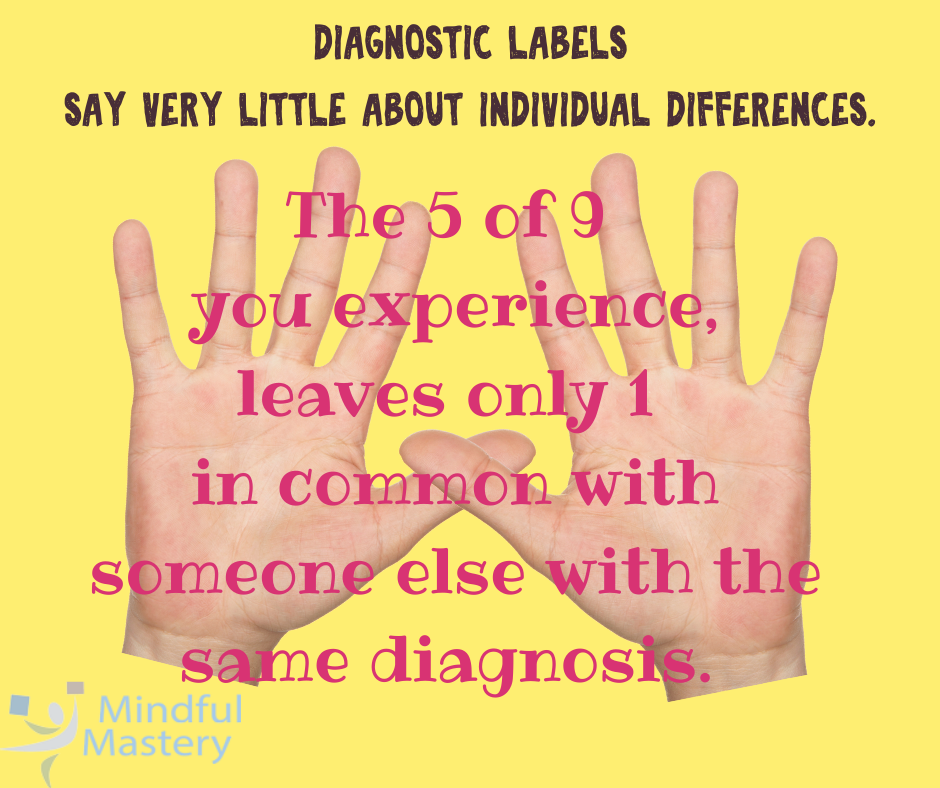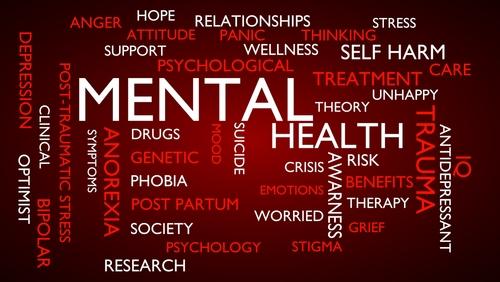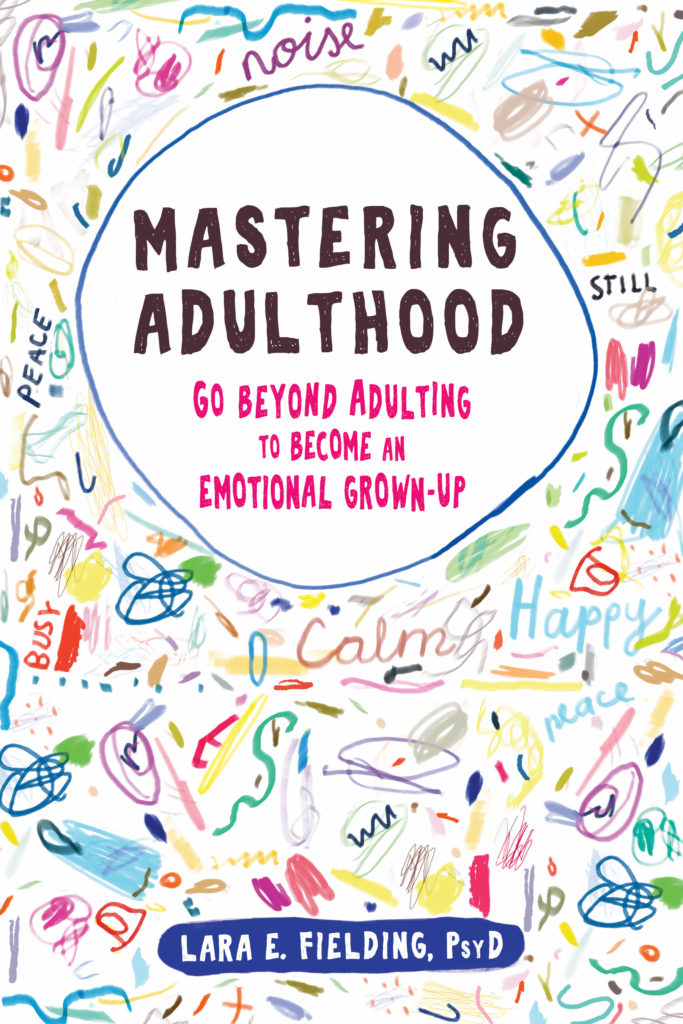Diagnostic labels are helpful as a shorthand way of communicating what one is experiencing. But I wonder; might they also contribute to keeping us stuck and maintaining the larger societal stigma?
Instead of focusing on labels, perhaps we need to encourage a language that speaks to the continuum of normal human psychology and the underlying system, which promotes mental health maintenance, prevents relapse and builds individual resilience.
Why We Turn to Labels
You may or may not have had a diagnosis in your lifetime. Nonetheless, almost all humans have experienced some period of angst, agitation, anxiety, or confusion and just plain brain fog, which makes coping more difficult.
The labels we give these periods of suffering have been helpful in some ways. These thumbnails of mental health status have served a purpose. They create a valuable language around which clinicians can use a kind of short hand communication for treatment decisions.
Before we had this system, created for our Diagnostic and Statistical Manual, treatment for mental health was a crapshoot. Having a single word or term is helpful, for clinicians the people who surround the person struggling, because it narrows the focus of problem solving and limits ambiguity.
Getting a formal diagnosis can also bring a major sense of relief to the person being labeled. When you’ve been struggling in the darkness of internal distress, hearing a professional confidently ascribe it to a single term can feel reassuring that help is on the way!
The Problem With Labels
If you’ve struggled with a diagnosis for some period of time, you know, the label may give everybody a sense of reassurance, but does very little to effectively reduce your suffering! You are far more complex than a label.
I’ll be honest, I don’t care much for diagnostic labels. The problem with putting people into label boxes is, once you go in, it’s very hard to get out! When we talk about diagnostic labels for mood and anxiety disorders in particular, we’re just looking at the surface symptoms; five out of nine usually, for two weeks or more.
PAUSE: Put your hands out in front of you and overlap your thumbs. This is how much overlap there is potentially between two people with the same label. So, in truth, the label really doesn’t tell us much about what you’re experiencing as an individual.
The Medical Model of Mental Illness
According to the American Psychiatric Association, mental illness is considered a medical disease, no different from heart disease or diabetes. And there are of course many severe and persistent mental illnesses that fall into this category, such as schizophrenia, bipolar disorder, and autism.
Unlike physical diseases however, the specific biological mechanisms of most mental illnesses is still largely a mystery. Even Thomas Insel MD, Director of NIMH, who believes strongly in the medical model of mental illness, has been cited as stating that the knowledge base is today where cardiology was 100 years ago.
Here’s my issue with this all or none stance. This medical model of mental illness suggests that “significant changes in thinking, emotion, and/or behavior” and “distress and/or problems in functioning,” indicate illness. This means something – you – is broken – and thus, needs to be ‘fixed’. Could the ‘sick’ and ‘disease’ labels be perpetuating stigma?
Mental Illness as a Cue for ‘Disease Avoidance’?
Some researchers propose that stigma is triggered by the “disease-avoidance system”, which elicits emotions of disgust and fear in humans. Both visible signs of illness and verbal labels can trigger this evolutionarily predisposed reaction. The emotion of disgust is a hardwired signal to ‘get away’ and ‘this thing could hurt you.’
So we’re left with a quagmire: Diagnoses help to explain, communicate, and put a circle around a cluster of difficulties. But this disease label approach to mental functioning may be provoking exactly the kind of stigmatization response we are trying to reduce.
We’re All In It Together: Changing The Way We Think, And Speak, About Mental Health.
The solution to this double bind may lay in how tightly we hold to a divided notion of health and illness. What if rather than pushing one agenda (mental illness is a disease) or the other (mental health is constantly changing along a continuum), we focused the discussion and education of the holistic components we all share?
We can, and should, educate the public on how to overcome the human predisposition to react with fear and disgust towards those suffering from mental illness. In particular, we should target misconceptions about people with mental illness being ‘dangerous’ and ‘unpredictable.”
What I’m wondering is this. What if together with increasing awareness and tolerance, we shift the conversation from one about disease and illness to one of our universal humanity? The interactive system of emotions, thoughts and actions, which underlie mental health and illness, apply to all of us!
So perhaps a more helpful way of reducing stigma, is not just in trying to get people to override their natural reactions to disease so much, and begin helping people to see mental health and illness in a more holistic way. What we see on the surface (i.e. diagnoses, personalities, overall functioning) are simply the different kinds of flowers in an ever-dynamic human garden. We all share the same kinds of soil!
When we become more informed about the processes, which apply to everyone, we can start dismantling the stigmatizing you-me, sick-healthy, crazy-sane divide, which propagates the stigma of mental health. With this information, we set the foundation for an agenda more aimed at the promotion of mental health maintenance, relapse prevention and building individual resilience.
This blog was inspired by Dr. Fielding’s multi media self-help book: Mastering Adulthood: Go Beyond Adulting to Become an Emotional Grownup. To learn more helpful skills for Mastering Adulthood, sign up for the Mindful-Mastery SKILL WEEKLY newsletter, or follow me on Facebook, Twitter, or Instagram. Or YouTube for skills videos!


